by Lê Hương
The first piece of news by Thông Tấn Xã Giải Phóng (Liberation News Agency) – the southern counterpart of Vietnam News Agency during war time – was sent to Hà Nội at 7pm, October 12, 1960 from Chàng Riệc Forest, Tây Ninh military base of The National Front for the Liberation of South Việt Nam.
The day marked the start of the agency’s historic mission to report on the fight against the Americans by southern people to domestic and international audiences.
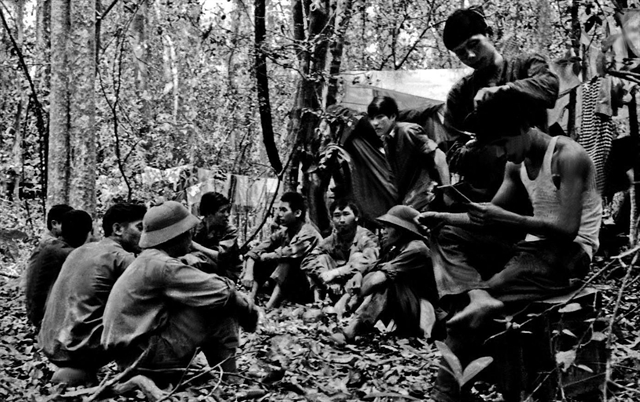
IN IT TOGETHER: A group of reporters from Ha Noi-based Vietnam News Agency joining the Hồ Chí Minh Campaign to support the Liberation News Agency in the south. VNA/VNS File Photo
Since then, the reports sent to Hà Nôi everyday at 6pm became crucial sources for news offices in Việt Nam and overseas through transmission by the Vietnam News Agency.
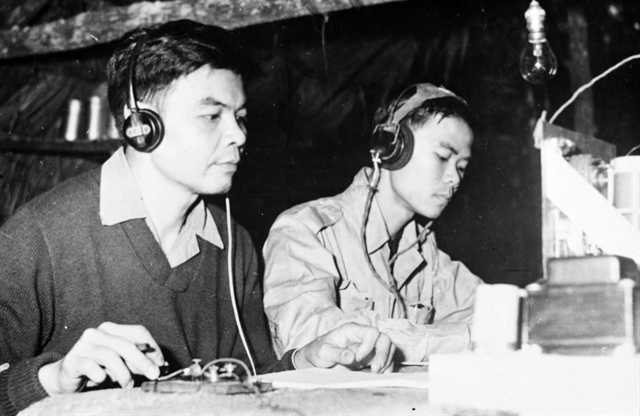
BREAKING NEWS: Technicians of the Liberation News Agency transmit news and photos during the American war. VNA/VNS File Photo
During its 15 years of operation between 1960 and 1975, the Liberation News Agency moved its temporary office dozens of times to ensure the safety of the staff.
News and photos by the agency’s reporters covered the most up-to-date events from Cà Mau to Quảng Trị, from rural areas of U Minh Thượng to Sài Gòn City, which provided information not only for people in the country on the war in the south but also military officers to analyse the situation and make strategic decisions.
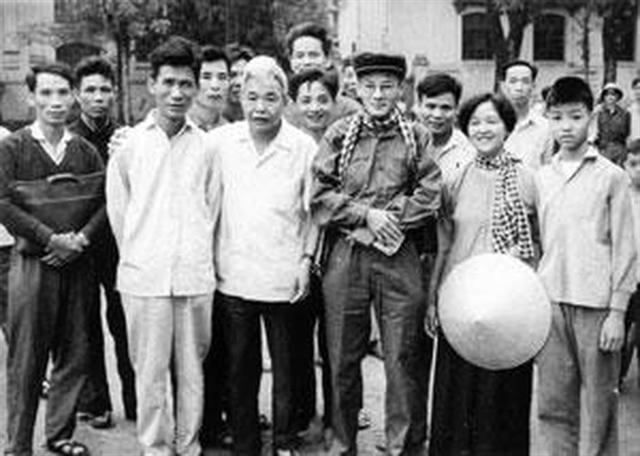
DIFFICULT JOURNEY: Family and colleagues see off journalist Trần Thanh Xuân to guide a group from the Ha Noi-based Vietnam News Agency to the south in 1973. Xuân then directed the Liberation News Agency between 1973 and 1975. VNA/VNS File Photo
The Liberation News Agency helped turn public opinion and garner international support for the Vietnamese people in military and diplomatic battles, helping to bring about victory for the Vietnamese people in the war against America in April 1975.
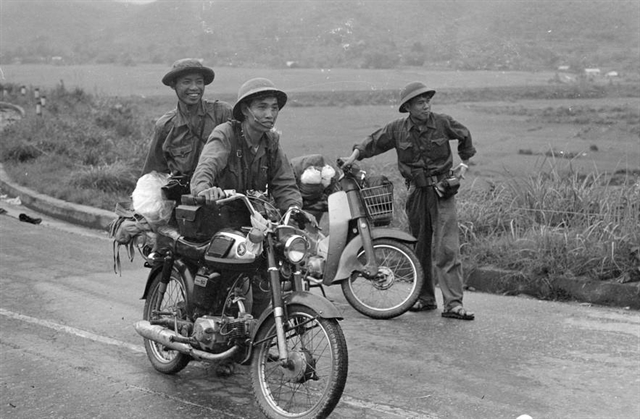
ON THE ROAD: Journalists Trần Mai Hưởng (first from left), Ngọc Đản and Hoàng Thiểm, who accompanied the troops to liberate Đà Nẵng stop at Hải Vân Pass on March 29, 1975. VNA/VNS Photo Lâm Hồng Long
According to journalist Thanh Bền, who used to work at the Liberation News Agency, all staff at the agency including reporters, technicians and leaders had to help dig shelters, trenches and wells, as well as set up tents; fetch sacks of rice; carry papers after printing; and plant vegetables.
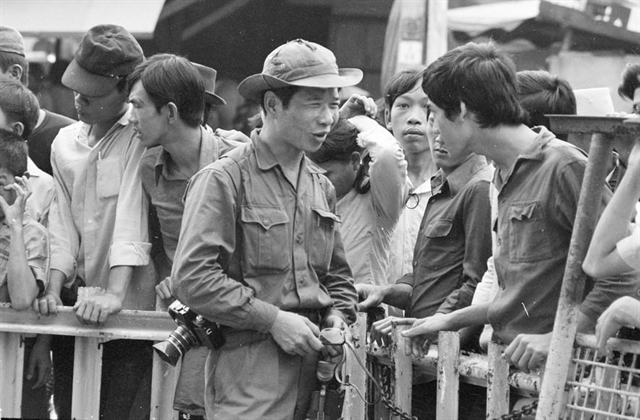
AT THE SCENE: Journalist Đinh Quang Thành from the Vietnam News Agency interviewed people in Sài Gòn on liberation day, April 30, 1975. VNA/VNS File Photo
“We supplied almost everything ourselves and shared the hardship,” he wrote in one article in Tin Tức (News) newspaper.
The agency even raised pigs and chickens, but not roosters for fear that the crowing would alert enemies.
“We even caught fish and trapped wild animals to increase our supplies of food,” he wrote. “Another important thing was maintaining a self-defence armed force to be ready to fight attackers.”
Bền recalled long sieges by the American troops, when they did not have food. The cook suggested picking bứa – a kind of wild mangosteen – to divide among the staff.
She cooked vegetables, salted the bứa to use as pickled vegetables and made the core of the fruit into soup.
“If we had salted peanuts, we could survive for weeks in the middle of the siege,” he added.
Bền said moving the office was the most disturbing time, as all the daily routines were affected except sending news to Hà Nội non-stop.
He remembered he experienced eight moves from Dương Minh Châu military base (Tây Ninh) to Mã Đà (Biên Hòa), then returned to Dương Minh Châu again; to Cây Dầu, Sáu Cầu to Kampong Cham in Cambodia then returned to Tây Ninh again
“The technicians who had to carry generators and other machines on their shoulders suffered the most during the moves, especially at night and in stormy weather,” he said.
The Liberation News Agency lost 240 reporters, editors and technicians during their missions, which is almost 50 per cent of the agency’s staff at the end of 1974.
The Việt Nam Journalists’ Association recognised the Liberation News Agency as losing the most journalists in the history of the Vietnamese revolutionary press.
On May 12, 1976, the Vietnam News Agency and the Liberation News Agency merged under the common name Vietnam News Agency. VNS
OVietnam